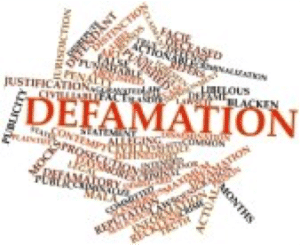ComplaintsBoard.com and RipOffReport.com are two service providers that offer a forum for unhappy customers to post about poor experiences they have with companies. The posts can range from customer service complaints, to overpricing issues, to quality concerns, and so on. The companies’ terms of service and terms of use pages remove any possible liability for defamation and other tort claims against the company, relying on Section 230 of the CDA and case law interpreting this section for their protection.
Unfortunately in a lot of cases, these providers and others like them are right. Legally, there is very little that can be done to have defamatory posts removed, and there is an ever growing amount of case law to prove it. You can contact the service provider and formally request the post be removed. The service provider then has the right to decide whether or not they will oblige your request to take the post down.
You are likely to have more success if you instead go after the individual poster or user directly. You can request the individual remove or redact the post. If this does not work, you can make a defamation claim against the specific user, instead of going after the service provider.
If the terms of use for the service provider eliminate potential liability by discussing Section 230, but also attempt to prevent posting of defamatory and other inappropriate comments, the provider has often done what is required to protect themselves from future tort claims.
However, these service providers, depending on the jurisdiction, are not always given absolute immunity. In Washington for example, the Supreme Court held that if the plaintiff could prove the terms of use for Backpage.com were designed to assist in sex trafficking of minors, than the company would be liable and the protection offered by Section 230 would not be provided.
As a result of this mixed case law, there is no one standard option available for removing defamatory posts. Instead, you are left with a handful of options:
- Contact the service provider and request they take the post down
- If the service provider refuses, consider the terms of use for the service provider and what the case law for your jurisdiction suggests (absolute immunity or not)
- Contact the user that made the post and request they remove the post or redact it
- Initiate a tort claim for defamation against the individual user who made the post, not the service provider
For more information about what options are available to you and what you can do to have defamatory comments removed from Internet service providers, contact Revision Legal’s Internet Defamation attorneys through the form on this page or call 855-473-8474.



